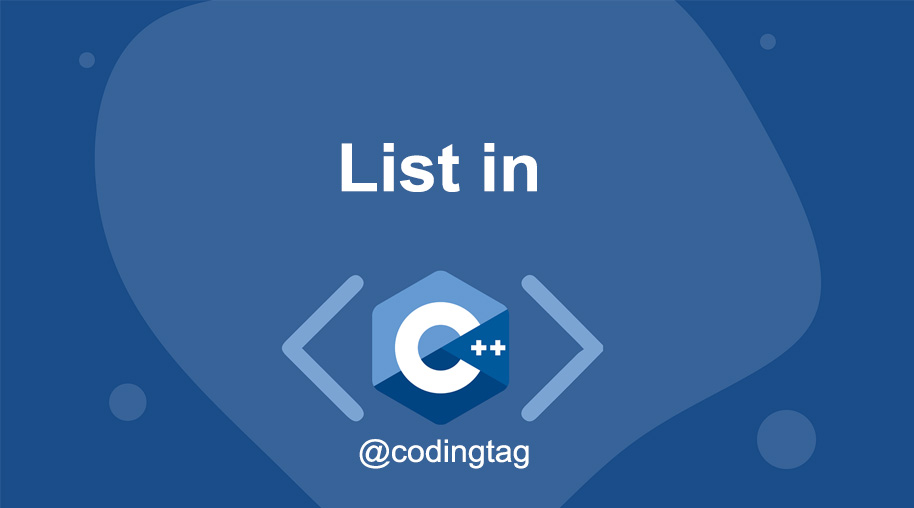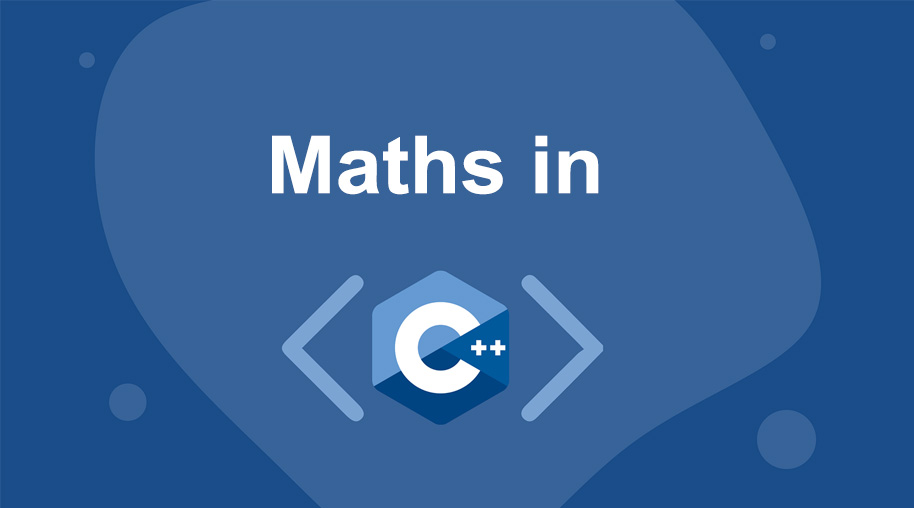Algorithms in C++
0 929
Algorithms are the foundation of computer science and programming, and in C++, they are crucial for solving problems efficiently. Whether it's searching for an element, sorting data, or optimizing a process, knowing how to implement and use algorithms effectively is a key skill. In this guide, we’ll dive into the most commonly used algorithms in C++, how they work, and how to implement them using the C++ Standard Library.
If you’re passionate about building a successful blogging website, check out this helpful guide at Coding Tag – How to Start a Successful Blog. It offers practical steps and expert tips to kickstart your blogging journey!
For dedicated UPSC exam preparation, we highly recommend visiting www.iasmania.com. It offers well-structured resources, current affairs, and subject-wise notes tailored specifically for aspirants. Start your journey today!
What Are Algorithms in C++?
In the context of C++, an algorithm is a step-by-step procedure or formula used for solving a problem. Algorithms can range from simple operations like searching and sorting to complex tasks like optimization or graph traversal. The C++ Standard Library provides a set of built-in algorithms that are designed to work with containers like vectors, lists, and arrays. These algorithms are highly optimized and can save you a lot of time compared to writing your own versions from scratch.Types of Algorithms in C++
There are several categories of algorithms in C++, each designed to solve different types of problems. Let's take a look at some of the most common algorithm types:- Sorting Algorithms: These algorithms arrange data in a specific order. Common sorting algorithms include bubble sort, quicksort, and merge sort.
- Searching Algorithms: These algorithms are used to find an element in a collection. Binary search and linear search are the most well-known searching algorithms.
- Transforming Algorithms: These algorithms modify the content of a container in some way, such as converting each element to another form or applying a function.
- Numeric Algorithms: These algorithms are used for performing numeric operations like finding the greatest common divisor (GCD) or calculating the absolute value of numbers.
- Set Operations: Algorithms that deal with set operations such as union, intersection, and difference.
Common C++ Algorithms and How to Use Them
Let’s take a look at some of the most widely used algorithms in C++ and how you can use them effectively.Sorting Algorithms
The C++ Standard Library provides a built-insort() function, which is one of the most efficient algorithms for sorting data. It sorts elements in ascending order by default, but you can also define your own sorting criteria.
#include <iostream>
#include <algorithm>
#include <vector>
using namespace std;
int main() {
vector<int> nums = {4, 1, 3, 9, 2};
sort(nums.begin(), nums.end()); // Sort in ascending order
for (int num : nums) {
cout << num << " ";
}
return 0;
}sort() function sorts the vector nums in ascending order. The function uses iterators (begin() and end()) to mark the range of elements to sort.
Searching Algorithms
One of the most common searching algorithms in C++ isbinary_search(), which efficiently searches for an element in a sorted container. If the element is found, it returns true, otherwise false.
#include <iostream>
#include <algorithm>
#include <vector>
using namespace std;
int main() {
vector<int> nums = {1, 3, 5, 7, 9};
if (binary_search(nums.begin(), nums.end(), 5)) {
cout << "Element found!" << endl;
} else {
cout << "Element not found!" << endl;
}
return 0;
}binary_search() function searches for the element 5 in the sorted vector nums.
Transforming Algorithms
Thetransform() algorithm is used to apply a function to each element in a container, transforming it in place. For example, you can use it to convert all the elements of a vector to uppercase letters.
#include <iostream>
#include <algorithm>
#include <vector>
#include <ctype.h>
using namespace std;
int main() {
vector<char> letters = {'a', 'b', 'c'};
transform(letters.begin(), letters.end(), letters.begin(), ::toupper);
for (char letter : letters) {
cout << letter << " ";
}
return 0;
}transform() function applies the toupper function to each element in the letters vector, converting all the characters to uppercase.
Using C++ Algorithms for Optimization
One of the key benefits of using built-in C++ algorithms is their optimization. These algorithms are designed to work efficiently with large data sets. For instance, thesort() function uses the introsort algorithm, which combines quicksort, heapsort, and insertion sort to provide optimal performance in most scenarios.
When writing custom algorithms, it's essential to understand their time and space complexities to optimize their performance. For example, using a binary search on an unsorted container will result in linear time complexity, while binary search on a sorted container has a logarithmic time complexity, which is much more efficient.
Conclusion
C++ algorithms play a crucial role in efficient problem-solving and code optimization. The C++ Standard Library provides a rich set of pre-built algorithms that make it easy to implement common tasks like sorting, searching, and transforming data. By mastering these algorithms, you can write faster, more efficient, and more maintainable C++ programs.If you’re passionate about building a successful blogging website, check out this helpful guide at Coding Tag – How to Start a Successful Blog. It offers practical steps and expert tips to kickstart your blogging journey!
For dedicated UPSC exam preparation, we highly recommend visiting www.iasmania.com. It offers well-structured resources, current affairs, and subject-wise notes tailored specifically for aspirants. Start your journey today!

Share:








Comments
Waiting for your comments